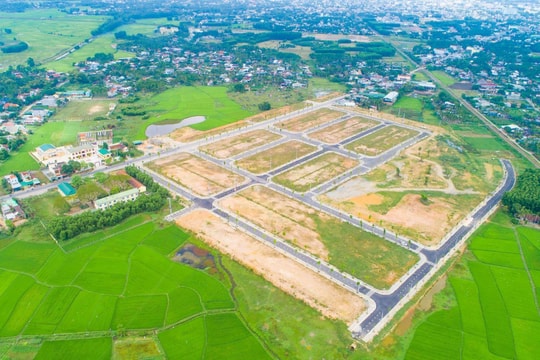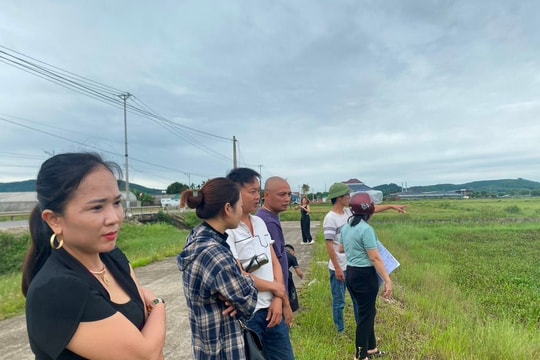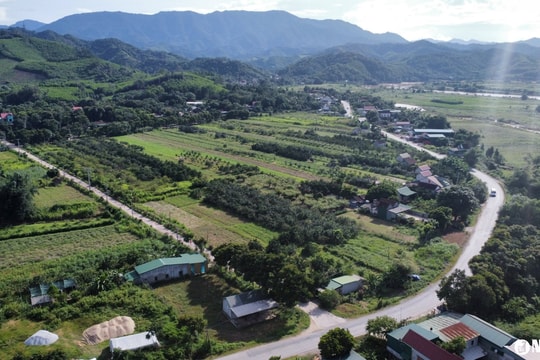Principles, bases and methods of land valuation according to the 2024 Land Law
Mr. NTL in Yen Thanh town asked: According to the 2024 Land Law, how are the principles and bases for land valuation regulated?
Reply:
Article 158 of the 2024 Land Law stipulates the principles, bases, and methods of land valuation as follows:
1. Land valuation must ensure the following principles:
a) Land valuation method based on market principles;
b) Comply with the correct methods, order and procedures for land valuation;
c) Ensure honesty, objectivity, publicity and transparency;
d) Ensure independence between the land price determination consultancy organization, the Land Price List Appraisal Council, the specific land price appraisal council and the agency or person with authority to decide on land prices;
d) Ensure harmony of interests between the State, land users and investors.

2. Land valuation basis includes:
a) The purpose of land use for which valuation is made;
b) Land use term. For agricultural land allocated by the State to households and individuals according to the agricultural land allocation quota, agricultural land within the land transfer quota, the land use term is not based on;
c) Input information for land valuation according to land valuation methods;
d) Other factors affecting land prices;
d) Provisions of relevant laws at the time of land valuation.
3. Input information for land valuation according to land valuation methods prescribed in Point c, Clause 2 of this Article includes:
a) Land prices are recorded in the national land database and the national price database;
b) Land price is stated in the land use rights transfer contract; the winning price of the land use rights auction after completing financial obligations;
c) Land prices collected through investigation and survey in cases where there is no land price information specified in Point a and Point b of this Clause;
d) Information on revenue, expenses and income from land use.
4. Input land price information specified in points a, b and c, Clause 3 of this Article is information formed within 24 months from the time of land valuation specified in Clause 2, Article 91 and Clause 3, Article 155 of this Law and earlier.
The use of information collected as prescribed in this clause shall give priority to the use of information closest to the time of land valuation.
5. Land valuation methods include:
a) The comparison method is implemented by adjusting the prices of land plots with the same land use purpose, certain similarities in factors affecting the land price transferred on the market, winning the auction of land use rights for which the auction winner has fulfilled financial obligations according to the auction winning decision through analyzing and comparing factors affecting land price after excluding the value of assets attached to the land (if any) to determine the price of the land plot to be appraised;
b) The income method is implemented by taking the average annual net income per land area divided by the average savings interest rate of 12-month term deposits in Vietnamese currency at commercial banks in which the State holds more than 50% of charter capital or total number of voting shares in the provincial area of 03 consecutive years up to the end of the most recent quarter with data before the time of land valuation;
c) The surplus method is implemented by taking the total estimated development revenue minus the total estimated development cost of the land plot or land area on the basis of the most effective land use (land use coefficient, construction density, maximum number of floors of the building) according to the land use planning and detailed construction planning approved by the competent authority;
d) The land price adjustment coefficient method is implemented by multiplying the land price in the land price table by the land price adjustment coefficient. The land price adjustment coefficient is determined by comparing the land price in the land price table with the market land price;
d) The Government shall prescribe other land valuation methods not specified in Points a, b, c and d of this Clause after receiving the approval of the National Assembly Standing Committee.
6. The cases and conditions for applying the land valuation method are stipulated as follows:
a) The comparison method is applied to valuation in cases where there are at least 03 land plots with the same land use purpose, certain similarities in factors affecting the land price transferred on the market, winning the land use rights auction where the auction winner has fulfilled the financial obligations according to the auction winning decision;
b) The income method is applied to valuation in cases where the land plot or agricultural land or non-agricultural land is not residential land and the land plot or land to be valued does not meet the conditions for applying the comparison method but the income and expenses from land use can be determined according to the land use purpose being valued;
c) The surplus method is applied to valuation in cases where the land plot or land area for investment project implementation does not meet the conditions for applying the comparison method or the income method but the total development revenue and total development costs of the project can be estimated;
d) The land price adjustment coefficient method is applied to specifically determine compensation when the State reclaims land in cases of reclaiming many adjacent land plots with the same purpose of use and whose land prices have been specified in the land price list but do not meet the conditions for applying the comparison method.
7. The land valuation methods prescribed in Clause 5 of this Article are used to determine specific land prices and develop land price lists.
8. In case of applying land valuation methods at points a, b and d, Clause 5 of this Article to determine specific land prices and the results are lower than the land prices in the land price table, the land prices in the land price table shall be used.
9. The choice of land valuation method is proposed by the organization implementing land valuation and decided by the specific Land Valuation Council.
10. The Government shall detail this Article.





